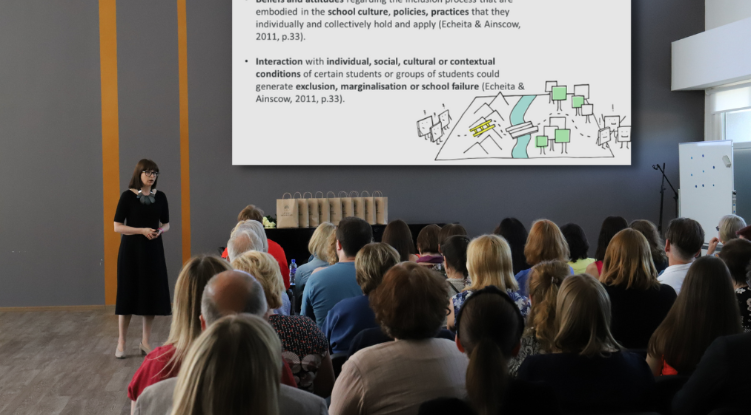As part of the project, the University of Latvia delivered a training course to 48 university colleagues. Our goal was to introduce the academic personnel to a Training course with hands-on experience.
The training course is developed as a tool to support academics, higher education staff, researchers, practitioners, learning designers, developers, and university support staff understand inclusive education, acknowledge its potential in the higher education sector and design and implement inclusive education programs in HE. The training course is based on the Design Thinking Methodology and is supposed to be 4 hours long. The Training course plan and PowerPoint presentation are available in English on the project’s website.
During the actual piloting of the training course, we strictly followed the course scenario. Afterwards, we came to the conclusion that the lecturers need to know the course material very well, even though they are provided with a very detailed plan. Also, according to the national context, some details in the plan may be changed.
The faculty members admitted that we have a lot to do to ensure inclusive higher education for everyone. All teachers try to support students in every possible way, but each of them does it in their own way. Systematic approach and guidelines need to be developed, so that teachers can have something to rely on, as sometimes it is hard to distinguish whether a student really has special needs or uses the situation in their favour.
The faculty members mentioned that they would also like to receive special training on inclusion. It was beneficial to remind ourselves how broad the term “inclusion” is. The discussions led to the conclusion that many changes could happen, if there are guidelines developed and implemented on universities and/or national level. Bigger changes require a holistic approach to inclusion.



